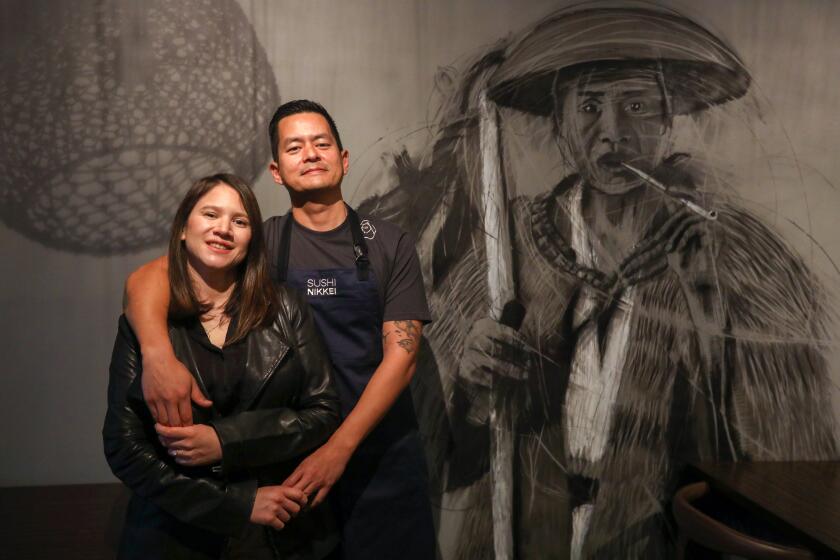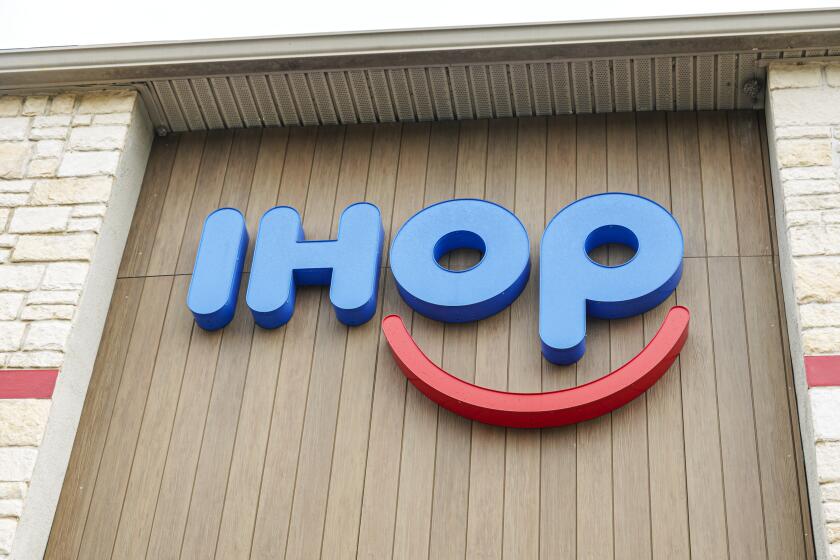Shot of Radiation Makes Cheap Whiskey Smooth : Agribusiness: Large doses promote the blending process, scientists say. However, food irradiation is widely illegal.
Using doses of radiation strong enough to kill 250 people, Japanese scientists say they can make bad wine taste good and cheap whiskey smooth.
They predict this kind of food irradiation could be legalized worldwide in as little as five years.
“It’s funny,” said Hiroshi Watanabe, joint head of research at the Japan Atomic Power Co.’s research facilities in Takasaki, just north of Tokyo.
“If you irradiate good wine or whiskey, they taste terrible. But if you expose bad wine and cheap whiskey to gamma rays, they taste much better,” said Watanabe, who first worked on irradiation research more than 20 years ago.
Irradiation, he said, worked on cheap liquor because it was poorly made, in the case of wine, or imperfectly blended, in the case of whiskey.
“With whiskey, what the radioactivity does is promote the blending process and that takes away any aftertaste,” he said.
“With wine, you end up discoloring it a bit, but by promoting fermentation you take away the bitter aftertaste of cheap wines and make it much smoother,” he said.
Researchers expose whiskey and wine to 2,000 joules of radioactive gamma rays, said Watanabe, adding that it takes just 8 joules of gamma rays to kill a person.
The main drawback with irradiation, he said, was that it remains illegal in most countries, and that many consumer groups oppose it, insisting it increases the risk of cancer.
“Right now, even in France and Holland, where food irradiation is common, many companies shy away from irradiating products because they fear consumers will link them to nuclear power and radiation, and turn to other brands.”
Still, Hitoshi Itoh, co-head of research at the Japan Atomic Power Co.’s research facilities in Takasaki, predicted food irradiation could be legalized soon. “Food irradiation is likely to take off globally in 2000,” he said.
“By then governments across the world hope to ban the use of methyl bromide--the chemical now used to prolong the life of and kill harmful bacteria in food products--because of the damage it does to the ozone layer, and after that’s banned, the only viable option is irradiation,” he said.
Itoh spoke after attending a food irradiation conference in Vienna, Austria, sponsored by the U.N.’s World Health Organization and the International Atomic Energy Agency.
He said the United States, Britain, France and China were pushing hard for an early introduction of irradiation, and that with their support, its legalization was a formality.
Asked about fears that eating irradiated food made people more likely to develop cancer, Itoh said laboratory tests showed there was no link between the two and that irradiation was safer than existing food sterilization techniques.
“In Japan, we have tested irradiation for more than 20 years and have found that it is perfectly safe, and actually better at killing the bacteria that cause different types of food poisoning than existing sterilization methods,” he said.
Watanabe said widespread irradiation could help alleviate the effects of famine and war and increase farmers’ export earnings.
“If there weren’t legal and social constraints, I think irradiation would already be used widely because a lot of the fresh food that spoils during transportation from one country to another could be saved if it was irradiated,” he said.
More to Read
Eat your way across L.A.
Get our weekly Tasting Notes newsletter for reviews, news and more.
You may occasionally receive promotional content from the Los Angeles Times.






